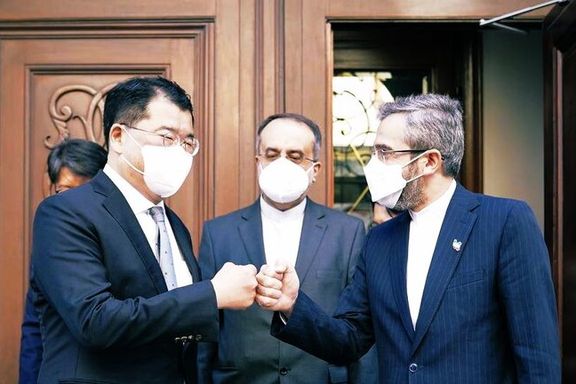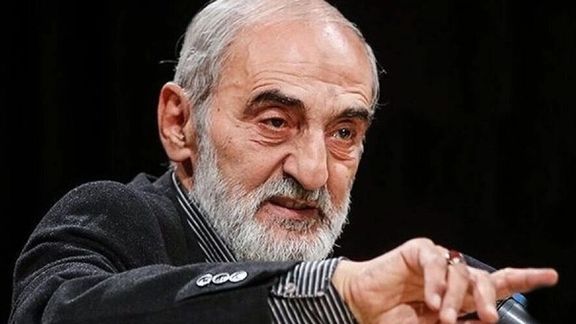'Close Hormuz Strait To South Korea', Hardline Tehran Daily Says

Iran must close the Strait of Hormuz to South Korean vessels until Seoul releases $7 billion frozen funds said a newspaper funded by Supreme Leader on Saturday.

Iran must close the Strait of Hormuz to South Korean vessels until Seoul releases $7 billion frozen funds said a newspaper funded by Supreme Leader on Saturday.
"We can and must close the Strait of Hormuz to South Korean cargo ships and oil tankers and all ships that carry South Korean commodities … and not allow them to navigate through the Hormuz Strait as long as they have not paid their $7 billion debt to our country," Hossein Shariatmadari, the chief editor of Kayhan, wrote in an editorial note entitled "Let's Begin Imposing Sanctions From South Korea".
Since former US President Donald Trump's introduction of ‘maximum pressure’ sanctions in 2018 after withdrawing from the 2015 nuclear deal, Joint Comprehensive Plan of Action (JCPOA), the US has threatened punitive action against any third-party buying Iran’s oil or dealing with its financial sector. The funds held in South Korea by two banks are Iran’s proceeds from oil exports before the Trump sanctions.
Shariatmadari argued that countries such as South Korea use US secondary sanctions as an excuse to freeze Iranian assets, but Tehran also has effective tools to counteract US sanctions.
"We can show that their actions are not without cost and could even entail heavier costs than if they violate US sanctions [on Iran]," the firebrand editor of Kayhan, an appointee of Supreme Leader Ali Khamenei, wrote.

Shariatmadari, a well-known opponent of the JCPOA and relations with the West, also claimed Iran is entitled to close the Hormuz Strait to oil tankers and cargo ships including those carrying weapons based on the 1956 Geneva Convention on the Law of the Sea and 1982 Jamaica Treaty, if they cause harm to Iran's security. South Korea is to be punished, therefore, for harming Iran through enforcing US sanctions, he argued.
On April 6, the government mouthpiece, Iran newspaper, quoted an unnamed official as saying that a large sum of Iran's frozen assets would be released in a deal separate from the nuclear talks which have come to a halt since mid-March due to sticking issues including Iran's demand that the US remove the Revolutionary Guards (IRGC) from its list of Foreign Terrorist Organizations (FTO).
American journalist Laura Rozen wrote on Friday that the Biden administration has apparently decided not to send a counter proposal to Tehran to close the final outstanding issues. "Iran would either get a deal with the IRGC remaining on the FTO list, or no deal,” she quoted Ali Vaez, director of the Iran program at the International Crisis Group, as saying.
Farhikhtegan newspaper in Tehran said in an article titled “Releasing Iran’s Frozen Assets Through Non-Nuclear Means” on April 7 that Iran had been negotiating in parallel with the nuclear talks in Vienna to access its frozen assets and quoted an unnamed "informed source" as saying that Iran would free three American-Iranians held in Iran in exchange for the $7 billion Seoul owes to Tehran.
Tehran and Seoul have been in a diplomatic standoff since February 2020 over the frozen money. Iran’s chief negotiator Ali Bagheri-Kani who met the Korean diplomat in Vienna on January 5 demanded the unconditional release of the funds, but Washington said it would waive third-party banking sanctions for Seoul only with “everything” agreed in the nuclear talks and a final deal.
In January 2021 Iran detained a Korean tanker and in April the same year, Khamenei banned the import of home appliances made by the two leading Korean manufacturers. Iranian media said this was a "diplomatic message" to Seoul.